9 things to consider before building a gaming PC
Whether you're building a gaming PC from scratch or upgrading an old system, you'll have more options than ever. Above all, remember that you are building a PC for your specific needs. Therefore, there are a few essential things you should keep in mind before you start ordering components.
1. Budget
How much are you willing to invest in this? Never spend too much when building a PC. Luckily, there's always a way to maximize value for money with any budget.

Provided you spend at least VND20 million on your build, you can make a mid-range 1080p gaming PC suitable for use for years to come. Sure, you'll need to make some trade-offs, but it's still possible to get a powerful machine in this budget range.
On the other hand, if you have more cash, such as around VND 30 million, you can buy high-end components capable of high-performance 1440p and even 4K gaming.
2. The game you want to play
Consider the type of game you want to play. A PC to run esports games like Counter-Strike: Global Offensive, League of Legends, or even Fortnite doesn't have to be as high-end as a PC running AAA titles like Cyberpunk 2077, Dying Light 2, or Horizon Zero Dawn.
The resolution at which you want to play your games should also be taken into account. For a long time, gaming in 1080p or full HD used to be the norm, but today, 1440p or quad HD gaming has become the hot spot for gamers in terms of picture quality and performance. capacity.
Note : The higher you set the game resolution, the lower your performance will be.

In terms of performance, consider how many frames you need your PC to produce. While many would agree that 60 FPS+ gaming should be the minimum standard these days, which may suffice for story-driven single-player games, you'll need as much FPS as possible in competitive multiplayer games. than.
In short, there should be a balance between resolution and frame rate. For gamers who pursue the highest possible frame rates, the financial investment in a PC will increase dramatically.
3. Upgrade roadmap
The processor (CPU) and the motherboard are the two most basic components of a PC. These determine the platform you're buying (Intel or AMD) and the possible upgrade path you'll have access to in the years to come.
Choosing one brand over another is often tempting, simply based on personal preference or affordability. But you should carefully consider the upgrade path before sticking with one platform for years.
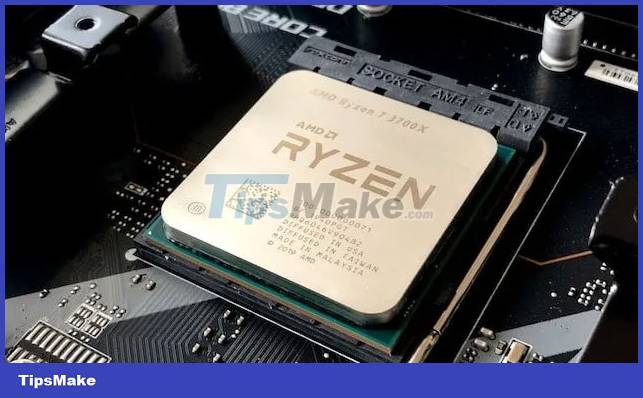
For example, Intel is widely known to refresh its motherboard sockets almost every year, which significantly limits the upgrade path for users. AMD continues to release new CPUs for its AM4 platform nearly 6 years after its initial launch in 2016. The company has promised to support the new AM5 platform launching in 2022 until 2025 and possibly beyond. again.
A long-lasting motherboard platform gives you plenty of options to install new and more powerful CPUs every 2 to 3 years. This can reduce your total initial investment in your PC by more than your annual investment in a new platform.
4. Purpose of use
Gaming PCs have a lot of power, and this naturally makes them ideal for many situations beyond gaming, such as professional video editing, image manipulation, and game streaming.
While gaming PCs are all-in-ones, they need to be configured if you intend to use them further. For example, a 6-core, 12-thread processor will be more than enough for a gaming-only build, but for a productivity build that needs all the CPU power possible, an 8-core processor is recommended. or 12 threads, even a 12-core processor for best results. Moreover, having more memory or RAM will also improve the performance on the machine.

Ultimately, the GPU on the productivity build doesn't have to be the best, but it should at least be powerful enough to keep up with the processor during graphics-intensive sessions.
5. GPU Selection
Your PC's graphics card will determine for itself what kind of performance you can expect from the games you play. Currently, the two major desktop GPU manufacturers – NVIDIA and AMD – offer a wide range of graphics cards at various price points.
Depending on your budget, you can choose a high-end card like NVIDIA's RTX 3080 or AMD's RX 6800 XT, or a mid-tier card like the RTX 3060 Ti or RX 6700 XT. There are also entry-level cards like the RTX 3050 and RX 6500, but you'll have to temper your expectations with products at that price point.
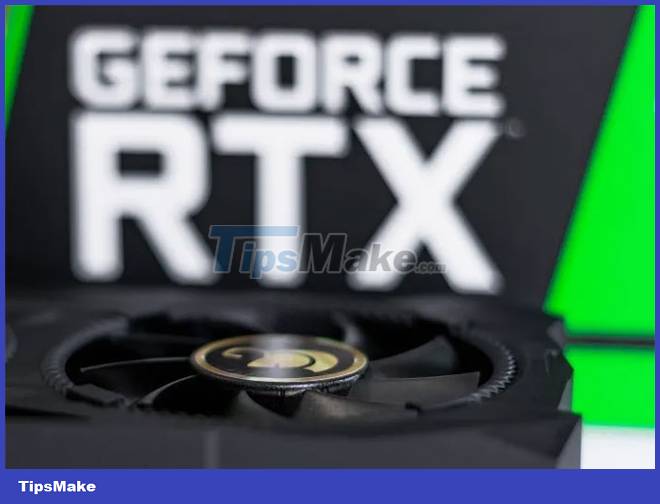
You can also choose a previous generation card to save money. In addition to price, factors such as raytracing support can also affect your choice of GPU. NVIDIA's RTX cards are generally known to be better than AMD's products for games that support lighting, reflections, and shadow effects. Even NVIDIA's FPS enhancement technology is rated as superior to AMD's.
However, if you want to focus on raw performance and save money, you should consider AMD's significantly cheaper but high-end GPUs.
6. Storage capacity
PC memory is one of the areas prone to overspending. Although there is no longer a reason to choose a mechanical hard drive, it is not wise to spend tens of millions on an expensive Gen 4 or Gen 5 SSD.
For most real-world scenarios like system booting or gaming, the right NVMe Gen 3 (PCIe 3.0) SSD is all you need for a smooth and fast experience. The latest Gen 4 or Gen 5 SSDs advertise blazing speeds, but it's rare to find use cases where you can feel the difference, except when copying large files on a daily basis.
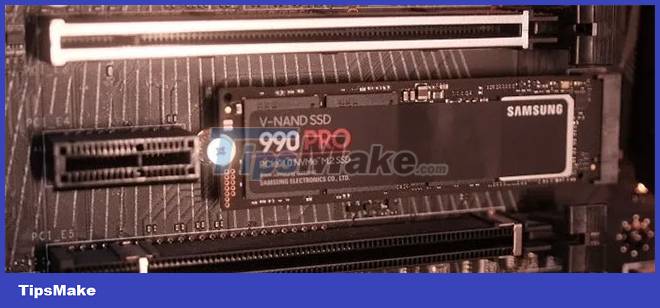
So as a general rule, a 500GB NVMe SSD under $50 should be enough for your operating system and some games. If you have a comfortable budget, go with a 1TB SSD. And you can always buy a cheaper HDD as a mass storage device.
7. Monitor and power
Achieving a certain frame rate at a certain resolution may depend solely on your GPU and CPU, but in reality it is simply impossible to experience it without a suitable monitor. body.
If you have an outdated full HD monitor with a refresh rate limited to 60Hz, your gaming experience won't feel 'premium' at all, no matter what the other components in the build. . This is where high refresh rate monitors come into play.
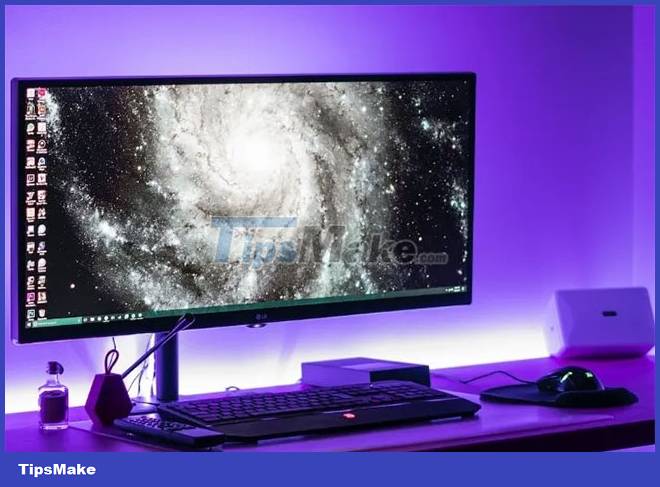
Over the past few years, 1440p 144Hz monitors have earned their status as the perfect balance between price and performance. They offer significantly higher image quality and refresh rates without the high price tag of high refresh rate 4K monitors.
Another aspect that is often overlooked is choosing a good power supply. A cheap PSU from an unknown brand can often limit the potential of a build – or worse, break and drag on other components. Always choose at least one mid-range device with enough power from a reputable manufacturer.

8. Aesthetics and size
A gaming PC must look "real". Components not only determine the physical size of the PC but also its external appearance. The aesthetic of the case is dictated by the colors, the RGB fans, the build quality, etc.
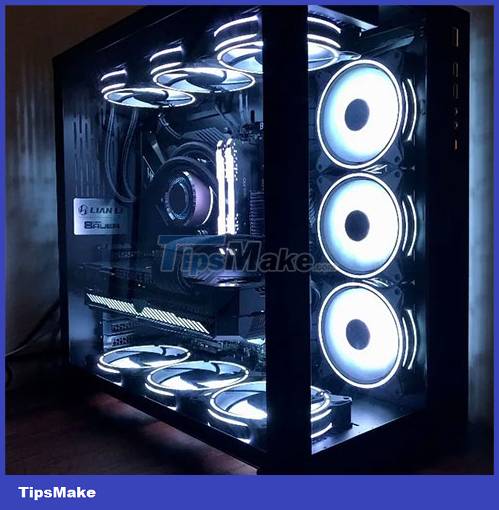
Gamers often leave the final case choice, not researching it as much as with other components. Cases with good airflow, cable management and upgrade potential can enhance your everyday experience and satisfaction. They also allow for future upgrades instead of having to replace the whole thing.
9. Used market
If your budget is a bit more limited, you might consider looking into the used market. With the recent crypto crash and new CPUs and GPUs from Intel, AMD, and NVIDIA, there are plenty of older generation products at great prices on sites like eBay, Craigslist, and Facebook Marketplace.
You may be hesitant to buy used products, especially GPUs, as they may have been used for cryptocurrency mining. But with eBay's buyer protection, you can rest assured that you'll get a refund in the event of a product issue.